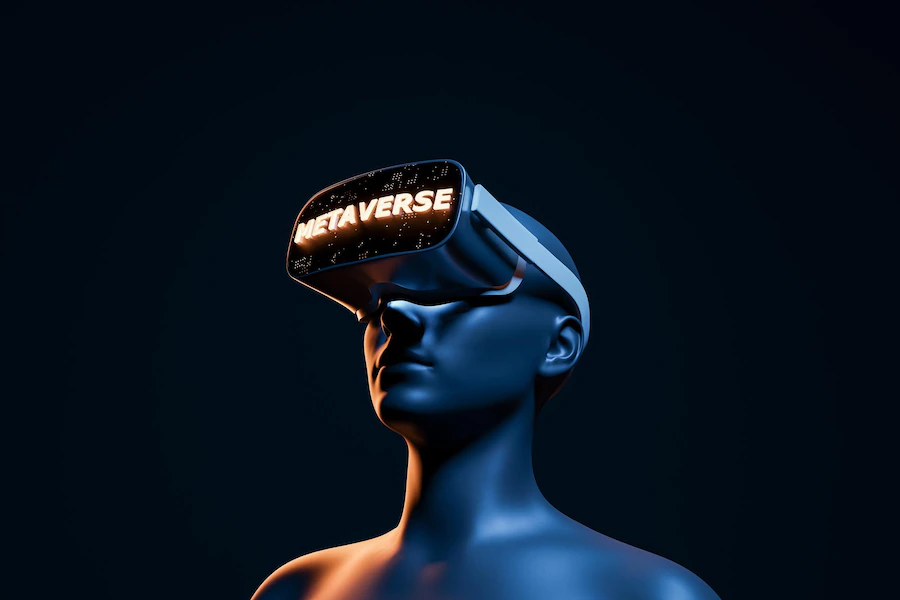WHAT IS METAVERSE SHOPPING?
Shopping becomes more immersive and interesting thanks to metaverse technology
As brands want to be able to engage more with customers in the virtual space, virtual store storefronts are growing opportunities for retailers. The metaverse is entirely a digital world. News mentions of “metaverses” and retail, hotel, and department store terms have risen exponentially over the last year.
Beyond gaining engagement, digital storefronts increase sales. One study found that 71% of people who had their own avatar in a shared online store actually bought something from that store. Most digital retailers have the opportunity to increase their average order value with the use of virtual stores, according to one startup.
Some people don’t expect the concept of a fully realized metaverse to become real, as they think that it may be decades before such an infrastructure takes shape. However, once the technology is finally in place and there are a lot more developments being made to make it possible, many people believe this will happen in an instant. In the metaverse, there are applications with which brands can increase web accessibility for customers with disabilities. These applications use augmented reality to offer users a more accessible experience without sacrificing quality or performance.
EARLY MOVERS
The first brands and retailers that began to experiment with companies in the digital space and storefronts were luxury & fashion related. dress, for example, was one of the first internet fashion firms to build a store in Decentraland’s shopping zone. Nike’s purchase of RTFKT in December 2021 signaled another foray into digital products and metaverse commerce for the company.
Brands and retailers are using AI for a variety of different uses now – including content creation. They offer new opportunities for consumers who are really into certain brands!
•In November 2021, a new testing division was created. Its purpose included designing and testing a VR showroom that would include many of Dyson’s beauty and hairstyling products compatible with its Oculus headset.
• In 2022, Metaverse Decentraland first held the Metaverse Fashion Week. There were a series of events with catwalks, activations, and afterparties that featured participation from 50 popular brands such as Dolce & Gabbana to The Fabricant.
• Forever 21 recently debuted a virtual store within Decentraland. They hosted an event at the same time, where they offer virtual & physical goods at a competitive price that is unique to certain events & events in-game.
Early-stage startups like Obsess, GMetri, MetaVRse, and Boson Protocol are enabling the construction of virtual stores on metaverse platforms to provide a more engaging platform for consumers. Boson Protocol is building a trustless, secure, and decentralized commerce infrastructure that lets anyone buy anything they want in real life or the digital world with their own money, without relying on any centralized entities or infrastructure.
As with all new technology, there is a lot of excitement and investment around metaverse malls & shopping experiences. While they are still in the early stages, big tech companies are racing to build the foundations of this promising field. Patents on topics like this have been filed, M&A transactions have occurred, and even products themselves roll out.
SUGGESTIONS
• Young adults & gamers report spending a lot of time in virtual worlds. They feel more comfortable with their interactions online than off and Gen Zers report feeling most like themselves online. They will be the first to take advantage of enhanced shopping opportunities in the metaverse, which is a reality already.
• AR/VR devices for virtual reality are already becoming more commonly used and are expected to also increase availability. Signals of metaverse adoption may include increased use of these devices that will raise consumer expectations in seamless access to virtual spaces across devices.
•Brands and retailers must be nimble and willing to experiment with the metaverse, which has no uniform approach. They will need to figure out what is the best use of a store in a virtual environment, whether it’s purely digital or not.
• The intersection of technology and the future of retail is rapidly approaching, and consumers are realizing that brands will not just be able to sell traditional goods. Increasingly, consumers expect the ability to purchase virtual goods that may include a digital copy to use in their own product.
• You are likely to have a lot of questions concerning the regulation of your identity and smart contracts. These questions will affect retail. It’s not yet clear whether companies such as Ethereum-based Decentraland will be decentralized or if big tech corporations will remain in control with little consumer input. Interoperability among metaverses, which allows customers to move items and interactions between platforms, will expand virtual goods’ potential even more.





